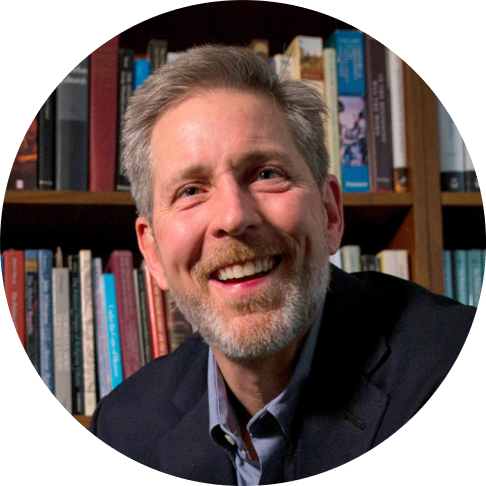
Great Christian Jurists in American History edited by Daniel L. Dreisbach and Mark David Hall
This book is part of a 50-volume series on “Great Christian Jurists in World History,” exploring the interaction of law and Christianity through the biographies of 1,000 legal figures of the past two millennia. Commissioned by the Center for the Study of Law and Religion at Emory University, each volume in this series focuses on a specific country, region, or era, and it samples the life and work of a score or more of its greatest legal minds over the centuries. These jurists include not only civil and canon lawyers and judges but also theologians, philosophers, and church leaders who contributed decisively to legal ideas and institutions, or who helped create landmark statutes, canons, or cases. Thus, familiar Christian jurists like Gratian, Grotius, Blackstone, Kuttner, and Scalia appear in this series, but so do Augustine, Isidore, Aquinas, Calvin, Barth, Maritain, and Romero. This biographical approach is not intended to deprecate institutional, doctrinal, social, or intellectual histories of law, nor will it devolve into a new form of hagiography or hero worship of dead white males. It is instead designed to offer a simple method and common heuristic to study the interaction of law and Christianity around the world over the past two millennia.
Columbia University Press opened this series in 2006 with a three-volume work on Modern Christian Teachings on Law, Politics, and Human Nature, featuring thirty modern Catholic, Protestant, and Orthodox Christian figures. Cambridge University Press has new titles on great Christian jurists in the first millennium, as well as in English, Spanish, French, Lowlands, and American history. Routledge is taking up the Italian, Nordic, Russian, Welsh, and Latin American stories; Mohr Siebeck the German story; and Federation Press the Australian story. Forthcoming titles will cover great Christian jurists in the history of Scotland, Ireland, Austria, Switzerland, Greece, and various countries and regions in Eastern Europe, the Middle East, Africa, and Asia.
An Introduction and Overview by the editors
Daniel L. Dreisbach and Mark David Hall
The first English settlers in North America brought with them laws and legal traditions steeped in Christianity and its sacred text. Long before their arrival in the early seventeenth century, Christianity had infused the English legal culture, specifically the common law, the colonists would bring to the New World. Indeed, leading jurists in both England and America have claimed that the common law was rooted in Christianity and nothing in the common law is valid that is not consistent with divine revelation. Sir William Blackstone, for example, wrote in his celebrated Commentaries on the Laws of England that “Christianity is part of the laws of England.”

The earliest laws framed in the colonies bear the unmistakable influence of Christianity. New England’s Puritan communities, especially, sought to establish Bible commonwealths and remake political society in conformity with biblical laws as they understood them. Christian customs and biblical concepts, for example, informed laws regarding Sabbath observance, oaths, marriage and domestic relations, blasphemy, various sexual practices, and the like. They were also incorporated into the laws and constitutions of the states and nation following independence from Great Britain. A biblical tradition, for example, influenced constitutional concepts mandating general principles of due process of law; setting standards of weights and measurements; requiring “the testimony of two witnesses” for convictions for treason; and prohibiting double jeopardy, cruel and unusual punishment, and corruption of blood.
Diverse intellectual, legal, and political traditions and perspectives helped shape American law and politics. Among the influences scholars have identified and studied are British constitutionalism, Enlightenment liberalism in various forms, and diverse expressions of republicanism (including Hebraic, classical, and civic). Our volume gives evidence that another, often overlooked, source of influence on the American legal system and jurisprudential thought is Christianity. While it is important to identify and examine this source of influence, its significance should not be overstated nor should other perspectives be ignored. Even before independence and adoption of the U.S. Constitution, jurists and jurisprudential perspectives more secular and at times antagonistic to Christianity began to emerge. These jurists and jurisprudential schools of thought were increasingly in tension with legal perspectives more in harmony with traditional Christian thought. Indeed, by the twentieth century, principles of non-establishment and church-state separation were increasingly deployed to exclude from public fora legal arguments and opinions informed by Christianity or the Bible.
Great Christian Jurists in American History focuses on the interplay between religion and law in the American experience by examining the jurisprudence of selected influential Christian jurists representing various eras in American history, from the establishment of English settlements in the early seventeenth century to the twenty-first century. The profiled jurists include Roger Williams, John Cotton, John Winthrop, William Penn, John Dickinson, Roger Sherman, Oliver Ellsworth, John Jay, James Wilson, Joseph Story, Simon Greenleaf, John Marshall Harlan the Elder, David J. Brewer, John T. Noonan, Jr., Harold J. Berman, Antonin Scalia, Mary Ann Glendon, Michael McConnell, and Robert P. George.
Even before independence and adoption of the U.S. Constitution, jurists and jurisprudential perspectives more secular and at times antagonistic to Christianity began to emerge.
By “jurist” we mean men and women engaged in the creation, application, and/or interpretation of constitutional, case, and statutory law or the philosophy of law. This broad definition includes judges, scholars, legislators, and legal practitioners. A few of the profiled jurists are better known for their professional pursuits in politics or religion than for their contributions to the law, but we believe these profiles reveal why they merit inclusion in this book.
The essays in this collection take seriously religion’s role in shaping the thought and practice of the profiled jurists. Each chapter examines the life and thought of a selected jurist who not only had a significant influence on law but also clearly identified with the Christian tradition and purportedly drew on Christianity to inform his or her jurisprudence. Religion mattered to these jurists. Most sought to apply their Christian faith, theology, biblical interpretations, and ethical framework to their understanding or reform of the laws of the civil state; landmark cases they decided or litigated; or influential treatises or canons they drafted.
We urged the contributors to examine their subjects in the manner they thought appropriate. That said, each chapter provides a biographical sketch of the profiled jurist, including mention of the jurist’s religious beliefs, denominational affiliations, etc.; a brief review of the scholarship on that jurist with an emphasis on whether Christianity’s influence on his or her jurisprudence has been studied adequately; an examination of the influence Christianity played on various aspects of the jurist’s legal philosophy; and a discussion of the extent to which the profiled jurist influenced or represents a larger group or tradition.
The profiles reveal that religion informed the jurisprudence of selected jurists in different, interesting, and sometimes even surprising ways. Consider, for example, the Puritan lawyer and governor of Massachusetts Bay, John Winthrop, who espoused a legal regime built around the concept of covenant, which meant that, although all authority comes from God, it must be grounded in mutual consent to be legitimate. Two often overlooked, but influential, American founders were Roger Sherman and Oliver Ellsworth, whose Calvinist views of human nature led them to oppose the concentration of power at every turn in the Constitutional Convention. Their fellow delegate, James Wilson, had a more optimistic view of human nature, but in his famous law lectures, he offered a sophisticated account of the Christian natural law tradition. Like every eighteenth-century Supreme Court justice (with one exception), he believed that a judge may appropriately declare a statute to be void if it conflicts with natural law.
The nineteenth-century Unitarian Supreme Court Justice Joseph Story endorsed the maxim that “Christianity is a part of the common law.” This informed his view that a generalized Christianity and attendant moral duties were embodied in the common law and deeply entangled with the Constitution. More recently, Supreme Court Justice Antonin Scalia, a devout Roman Catholic and prominent proponent of an “original meaning” interpretive methodology, professed paradoxically that one cannot separate religion from one’s intellectual life and, yet, he said his job as a judge is to apply the meaning of a text without regard to policy considerations or moral values.
It should come as little surprise that most of the jurists profiled in this volume are white males. Women and persons of color were excluded from the practice of law for much of American history and, once they gained entry into the profession, were often marginalized. We would have liked to have included more jurists who were not white males, but space limitations forced us to make difficult choices. When forced to make difficult selections, we decided that, in terms of sustained influence on American jurisprudence, we would not replace John Marshall Harlan with, say, Myra Bradwell or Antonin Scalia with Clarence Thomas. We understand that some readers will disagree with these decisions, and we hope that this volume encourages scholarship on jurists we did not profile.
Christianity and its sacred text are woven into the fabric of American jurisprudence.
Prior to the twentieth century, most prominent jurists were Protestants (Roger Taney is a notable exception to this rule). Since the 1950s, arguably a disproportionate percentage of distinguished Christian jurists have been Roman Catholics — a shift illustrated by the fact that from Justice John Paul Stevens’ retirement in 2010 until Justice Antonin Scalia’s death in 2016, there were six Roman Catholics and no Protestants sitting on the Court. This change is also reflected in the later chapters in this volume — four of the last six chapters profile influential Catholic jurists.
It is fair to say that the profiled jurists from the early colonial era reflected the religious perspectives of the communities and the times in which they lived. Many of the profiled Christian jurists from the late-twentieth and twenty-first centuries, by contrast, have espoused counter-cultural values and perspectives insofar as their jurisprudence challenges aspects of an increasingly secular and postmodern culture. It is, perhaps, no coincidence that many of the jurists profiled early in the volume (who lived in times when Christianity had a pronounced influence on public culture) held high political or judicial offices, whereas those considered later in the collection are more likely to have left their mark on jurisprudence through their scholarship than through high political or judicial positions.
Christianity and its sacred text are woven into the fabric of American jurisprudence. Great Christian Jurists in American History identifies and profiles jurists who played key roles in incorporating, expressing, explicating, and defending these religious threads in American law and legal traditions. ♦

Daniel L. Dreisbach is a professor in the School of Public Affairs at American University and an affiliated faculty at the Center for the Study of Law and Religion at Emory University. His research interests include the intersection of religion, law, and politics in American public life; and his published work includes Thomas Jefferson and the Wall of Separation between Church and State (New York University Press, 2002) and Reading the Bible with the Founding Fathers (Oxford University Press, 2017). You can follow him on Twitter @d3bach.

Mark David Hall is Herbert Hoover Distinguished Professor of Politics at George Fox University and Affiliated Faculty at the Center for the Study of Law and Religion at Emory University. He has written, edited, or co-edited a dozen books, including Great Christian Jurists in American History (Cambridge University Press, 2019) and Did America Have a Christian Founding?: Separating Modern Myth from Historical Truth (Nelson Books, 2019).
Recommended Citation
Dreisbach, Daniel L. and Mark David Hall. “Great Christian Jurists in American History – An Introduction and Overview by the editors.” Canopy Forum, July 9, 2020. https://canopyforum.org/2020/07/09/great-christian-jurists-in-american-history/

